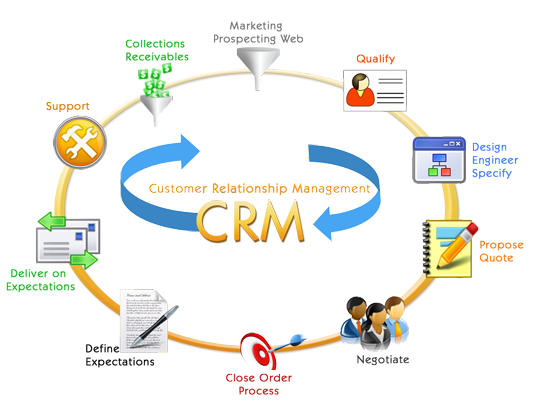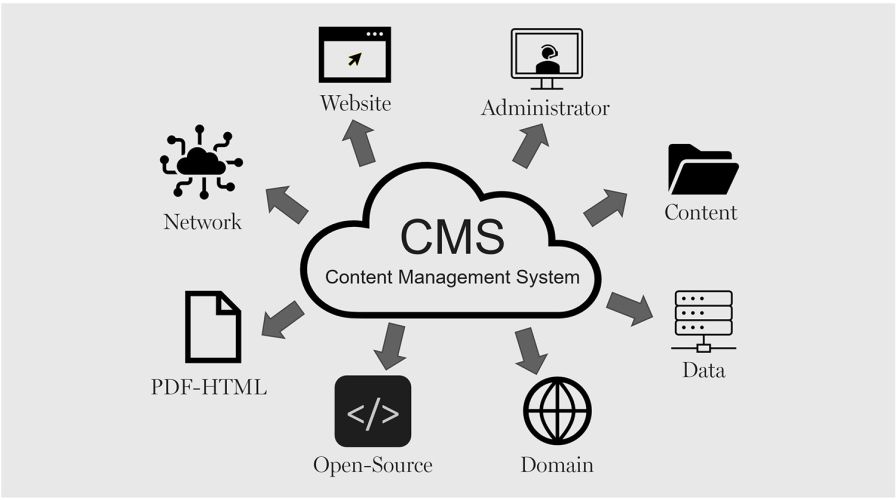In today’s competitive business landscape, fostering strong customer relationships is paramount to success. This is where Customer Relationship Management (CRM) software comes in. But what exactly is a CRM, and how can it empower your business?
CRM systems are a popular strategy for businesses to manage their interactions with customers, both current and potential (sales prospects). They leverage technology to streamline, automate, and unify various business processes. While traditionally focused on sales activities, CRMs now encompass marketing, customer service, and technical support functions as well.
Who Can Benefit from CRMs?
The power of CRMs extends to a wide range of businesses, regardless of size or industry. Here’s a closer look at how CRMs can benefit different types of organizations:
- Business-to-Business (B2B) Companies: B2B sales cycles are often complex and lengthy. CRMs help B2B companies manage intricate lead nurturing processes, track interactions with multiple decision-makers, and maintain long-term customer relationships.
- Business-to-Consumer (B2C) Companies: CRMs empower B2C companies to personalize customer experiences across various touchpoints. By understanding individual customer preferences, B2C companies can tailor marketing campaigns, product recommendations, and post-purchase support, fostering customer loyalty and repeat business.
- Departments Within Organizations: CRM benefits extend beyond sales teams. Marketing departments can leverage CRMs to segment audiences and create targeted campaigns. Customer service teams gain valuable customer insights to provide personalized support. Even talent acquisition teams can leverage CRMs to manage candidate relationships and streamline the recruitment process.

A Customer Relationship Manager (CRM) is someone who builds and maintains relationships with a company’s customers. They are essentially the face of the company to the client, acting as the main point of contact and ensuring customer satisfaction. CRMs are responsible for a variety of tasks, including:
- Building relationships: This involves getting to know customers, understanding their needs, and providing them with excellent service.
- Identifying new business opportunities: CRMs are always on the lookout for ways to grow their client base and increase sales.
- Resolving customer complaints: When customers have problems, CRMs are there to listen to their concerns and find solutions.
- Communicating with other departments: CRMs often work with other departments, such as marketing and sales, to ensure that customers have a positive experience throughout their journey with the company.
- Analyzing customer data: CRMs use data to track customer behavior and identify trends. This information can be used to improve customer service, develop targeted marketing campaigns, and more.
CRMs are essentially the bridge between a company and its customers. They play a vital role in driving customer satisfaction, retention, and ultimately, sales growth.
Understanding CRMs as a Central Hub for Customer Interactions
A CRM system is a software solution designed to streamline and centralize all your customer interactions. It acts as a comprehensive database, meticulously storing customer information, communication history, purchase behavior, and preferences. This empowers businesses to:
- Gain a 360-Degree Customer View: CRMs consolidate customer data from various touchpoints, like sales interactions, marketing campaigns, and customer service inquiries. This holistic view allows you to understand your customers’ needs, buying journeys, and preferences on a deeper level.
- Optimize Sales Pipelines: CRMs track leads throughout the sales funnel, enabling you to visualize their progress and identify potential roadblocks. Features like deal forecasting and pipeline management help sales teams prioritize leads, close deals faster, and maximize sales opportunities.
- Enhance Marketing Strategies: By analyzing customer data and preferences, Customer Relationship Management can inform targeted marketing campaigns. You can segment your audience based on demographics, interests, and purchase history, delivering personalized marketing messages that resonate with each customer group.
- Improve Customer Service: CRMs equip customer service representatives with a wealth of customer information at their fingertips. This allows them to personalize interactions, address inquiries efficiently, and resolve issues promptly, leading to higher customer satisfaction and loyalty.
- Boost Collaboration: CRMs break down communication silos within your organization. All customer interactions and data are readily accessible to relevant departments, fostering seamless collaboration between sales, marketing, and customer service teams.
Key Functionalities of Customer Relationship Management Systems
CRM software offers a robust set of features to manage customer interactions effectively. Here’s a breakdown of some core functionalities:
- Contact Management: Store and organize detailed customer information, including contact details, purchase history, communication preferences, and past interactions.
- Lead Management: Capture, nurture, and qualify leads through various channels. Track lead progress within the sales pipeline and identify opportunities for conversion.
- Sales Pipeline Management: Visualize the sales pipeline, forecast deals, and prioritize leads based on their likelihood of converting. Identify potential roadblocks and adjust sales strategies accordingly.
- Sales Force Automation (SFA): SFA software automates all phases of the sales cycle, minimizing the time salespeople dedicate to each stage. This allows businesses to manage client relationships with potentially fewer representatives. At the heart of SFA lies a contract management system, which tracks and records every interaction within the sales process for each prospect, from initial contact to final deal closure. Common SFA features include territory management, sales forecasting, workflow automation, quote generation, and product knowledge resources.
- Marketing Automation: Customer Relationship Management systems equipped with marketing tools help companies identify and target ideal customers, generating qualified leads for the sales team. A key marketing capability is multi-channel campaign tracking and measurement, encompassing email, search engine marketing, social media engagement, telephone outreach, and direct mail.
- Customer Service Management: Track customer service interactions, manage support tickets, and provide personalized support to customers. Analyze customer feedback to identify areas for improvement and enhance the overall customer experience.
- Reporting and Analytics: Gain valuable insights into customer behavior, sales performance, and marketing campaign effectiveness through comprehensive reporting and analytics tools. Use these insights to make data-driven decisions and optimize your strategies.
The Advantages of Implementing a Customer Relationship Management System
Investing in a CRM system can bring significant benefits to your business. Here are some of the key advantages:
- Improved Customer Relationships: By fostering personalized interactions and providing exceptional customer service, CRMs help you build stronger and more enduring customer relationships.
- Enhanced Sales Performance: Customer Relationship Management streamline the sales process, improve lead management, and equip your sales team with valuable tools to close deals faster and achieve higher sales targets.
Increased Customer Retention and Loyalty
Customer Relationship Management empower you to nurture customer relationships beyond the initial sale. By leveraging customer data and purchase history, you can:
- Offer personalized recommendations: Suggest products or services that complement a customer’s past purchases, demonstrating your understanding of their needs and increasing the likelihood of repeat business.
- Implement targeted loyalty programs: Reward loyal customers with exclusive discounts, early access to new products, or personalized birthday offers. This incentivizes repeat business and fosters brand loyalty.
- Proactive customer service: Identify potential customer issues and proactively address them before they escalate. This demonstrates your commitment to customer satisfaction and builds trust.
Improved Operational Efficiency:
CRMs automate repetitive tasks, streamline workflows, and centralize customer data. This leads to:
- Reduced administrative burden: Sales reps, marketers, and customer service personnel can focus on strategic tasks rather than manual data entry and record-keeping.
- Enhanced collaboration: CRM systems break down information silos, allowing teams to collaborate seamlessly on customer interactions and projects.
- Data-driven decision making: With comprehensive reporting and analytics, you gain valuable insights to identify areas for improvement, optimize processes, and make data-driven decisions across your organization.
Selecting the Right Customer Relationship Management for Your Business
With a vast array of Customer Relationship Management solutions available, selecting the right one for your business is crucial. Here are some key factors to consider:
- Business size and needs: Identify your specific needs and pain points. Do you need a CRM for sales, marketing, customer service, or a combination? Consider the size and complexity of your organization and the features most important to you as well as your specific needs and goals.
- Features and functionalities: Evaluate the features offered by different Customer Relationship Management systems to ensure they align with your business requirements.
- Scalability: Choose a Customer Relationship Management that can scale with your business as it grows. Look for a solution that offers flexible features and pricing plans that adapt to your evolving needs.
- Ease of use: A user-friendly CRM is essential for ensuring user adoption and maximizing the benefits of the system. Choose a CRM with an intuitive interface and robust training resources for your team members to adopt and utilize effectively.
- Budget: Customer Relationship Management solutions vary in price depending on features, scalability, and deployment options (cloud-based vs. on-premise). Set a realistic budget and compare pricing models of different vendors and choose a system that offers the best value for your investment.
- Integration: Ensure the CRM integrates seamlessly with your existing business tools, such as marketing automation platforms, accounting software, and email marketing services.
Implementing and Getting the Most Out of Your CRM
Once you’ve chosen a CRM system, successful implementation is key to unlocking its full potential. Here are some steps to ensure a smooth transition:
- Data Migration: Plan how you will migrate your existing customer data into the new CRM system. Ensure data accuracy and consistency to maintain a clear customer view.
- User Training: Provide comprehensive training to your team on the CRM’s functionalities and best practices for data entry and utilizing the system effectively.
- Data Quality Management: Establish data quality control measures to ensure the accuracy and completeness of customer information within the CRM.
- Regular Review and Optimization: Continuously monitor your CRM usage and analyze customer data. Identify areas for improvement and adapt your CRM strategy based on your findings.
Conclusion
In today’s customer-centric business landscape, a robust CRM system is no longer a luxury, but a necessity. Customer Relationship Management (CRM) is an invaluable tool for businesses of all sizes. By understanding the core functionalities, benefits, and implementation considerations, you can harness the power of CRMs to streamline operations, enhance customer interactions, and achieve sustainable business growth. Remember, a well-chosen CRM acts as a strategic partner, empowering you to build lasting customer relationships and unlock the full potential of your business.





